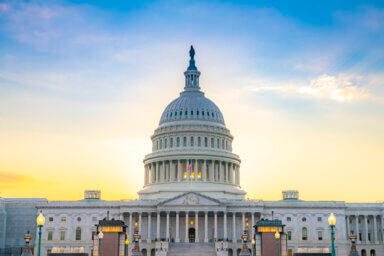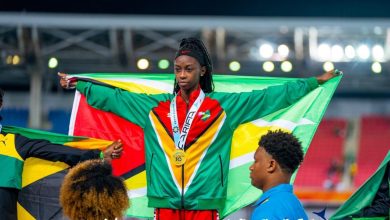Major Think Tank says US moving to curtail China’s economic investment in the Caribbean

A major think tank in Washington, D.C. says the United States is moving to curtain China’s economic investment in the Caribbean.
The Council on Hemispheric Affairs (COHA) – a nonprofit independent research and information organization, established in 1975 by former director Larry Birns to promote the common interests of the hemisphere, raise the visibility of regional affairs, and increase the importance of constructive inter-American relationships – said that although China’s investment and trade with Venezuela, Cuba and Nicaragua are minimal in comparison to other states in the region, US officials have expressed “an urgent need for US reengagement with the Caribbean region – where historically this sort of engagement by the US was only used to counter ‘threats’ like communism, socialism, Black Power, and any expression of anti-imperialism.
“These left leaning movements challenge US interests in maintaining a global capitalist system that supports liberal theories of development via free-trade, open-markets, and privatization, for the states in its backyard’”, it said. “Washington considers growing Chinese economic ties in the region at odds with US interests.”
Three months after General Laura J. Richardson of the United States Southern Command gave testimony at a congressional hearing in March, wherein she issued a warning to US lawmakers about the expansion of Chinese influence in the Caribbean that were at odds with purported US interests in the region, COHA noted that US Vice President Kamala Harris made an official visit to The Bahamas to co-host a US-Caribbean Leaders Meeting with Bahamian Prime Minister Philip Davis.
“Notably, it was the first time that a high-ranking US official had visited The Bahamas since it gained independence in 1973,” COHA said.
It said that, during the meeting, Harris, the daughter of retired Jamaican economist Donald Harris, stated that, given “longstanding requests from Caribbean partners,” the Biden-Harris administration would be expanding US diplomatic presence in the Eastern Caribbean region by opening two new embassies.
However, COHA said this enhanced US diplomatic presence in the Caribbean belies an earlier claim made by US officials in 2018 that “the cost of establishing a United States Embassy in Antigua and Barbuda or any other member state of the Organization of Eastern Caribbean States (OECS) would be prohibitive.”
COHA said the US (and its allies like Canada) are pursuing a strategy of “boosting a diplomatic presence” in the Pacific and the Caribbean, to both counter and undermine China’s investments and influence with states in these areas.
COHA said the “geostrategic importance” of these (maritime) regions for the US and its allies gained “increased urgency, given the Memorandum of Understanding (MoU) between China and the Solomon Islands in 2022, and a cooperation agreement between China and Cuba signed earlier this year, followed by subsequent unfounded speculation about China ‘spying’ from a base location in Cuba.
“As it stands right now, the US has a diplomatic presence in two out of the seven countries in the Eastern Caribbean,” it said. “This means that realistically there are only five states where the two embassies can be built. Those are: Antigua and Barbuda, Dominica, Montserrat, St. Kitts and Nevis, and St. Lucia.
“Antigua and Barbuda have aggressively made the case for a US embassy to be housed in their country for a number of years, and given the announcement, they have ramped up those efforts,” added COHA, stating that there was previously a US embassy in Antigua before it closed in 1994; and of OECS countries today, “Antigua has the most approved visas (and highest visa burden) to the US of OECS states.”
COHA said Antiguan Chief of Staff in the Prime Minister’s Office, Lionel Hurst, has also revealed in July of this year that Antigua has designated a plot of land for use by the US government in case the island is chosen for an embassy.
“However, to the chagrin of the Antiguan government, US officials have yet to announce which two countries will be selected to host the embassies, even as a reception was hosted by the US Embassy on Jumby Bay Island to celebrate independence,” it said.
“While Antigua wants visa issuing streamlined for its citizens, an increased US diplomatic presence in the formerly neglected Eastern Caribbean would not be aimed at alleviating visa burdens or addressing long standing requests from the region, but rather at countering China’s inroads in the region,” COHA added.
“Increased US ‘diplomatic’ presence in the Caribbean, in response to economic investments made by the PRC (People’s Republic of China), reminds us that ‘states are not equally free to act across the globe,’ and that the existence of spheres of influence are more accurately described as geostrategic security zones for extending the influence of states,” it continued. “That the US plans to increase its diplomatic presence in the Caribbean now should be understood as another ploy of external subversion – which exploits Caribbean people’s needs (that is, the ability to process visas) – to advance US geostrategic aims vis-a-vis the PRC.”





